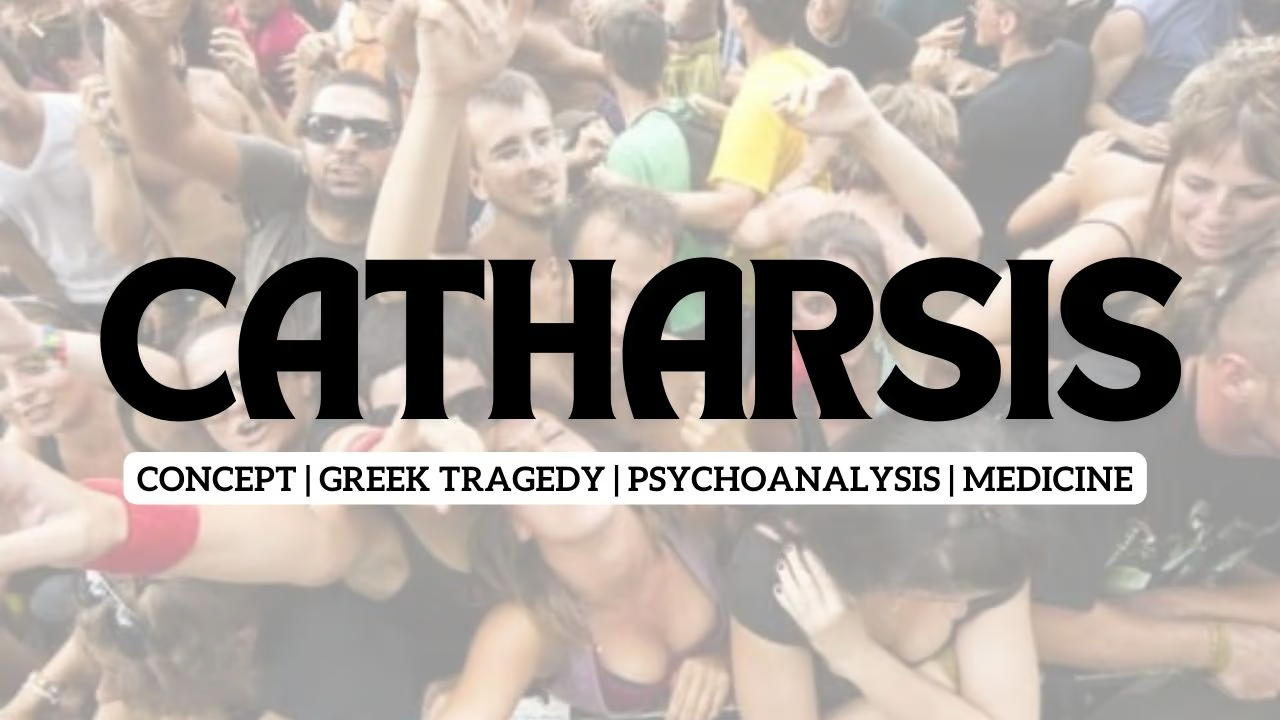Catharsis Definition: We explain what catharsis is and the origin of the term. Also, what is catharsis in Greek tragedy, in psychoanalysis and in medicine.
What is catharsis?
In general, catharsis is called an act of liberation, purification or cleansing, whether of the body, mind or emotions. It can occur spontaneously or thanks to the action of external forces, depending on the specific meaning given to it.
The term was coined in ancient Greece (katharsis), and used in different senses: the physician Hippocrates (c. 460-c. 370 BC) used it to refer to menstrual flow, which meant the expulsion of malignant humors that the body needed to get rid of; while the botanist Theophrastus (c. 371-c. 287 BC) used it as a synonym for “pruning,” since the inappropriate branches are removed from trees.
However, the best-known use of the term comes from Aristotle’s Poetics (384-322 BC), a work that founded Western literary criticism, and in which the term catharsis appears associated with the positive effects that tragedy has on Greek citizens, by allowing them a space for the purge of low passions, which would have a direct positive impact on the quality of their souls. Maybe you would like to know this Historical Materialism !
This latter sense of the word catharsis persisted in the tradition of the West and reappeared in the Middle Ages to give name to the Cathars or Albigensians, a fanatical Christian sect that proliferated in Europe between the 11th and 13th centuries, especially among the inhabitants of the French South (south of France) and the former crown of Aragon.
Classified as heretical by the Catholic Church, the doctrine of the Cathars proposed that the world was a terrain of conflict between the material and low forces of Satan and the spiritual and pure forces of God.
According to this vision, between both forces were human souls forced to reincarnate, unless they managed to purify themselves sufficiently through extreme asceticism, compulsory chastity and vegetarianism. For them, Jesus had never been incarnated, but had been an apparition of God to guide his faithful along the right path.
Catharsis in Greek tragedy
According to what Aristotle formulated in his Poetics, catharsis is a process of emotional, spiritual and moral purification or purging, which takes place when the spectators of the work become involved in the fate of the characters, and see their own low passions being punished in them.
That is, by suffering while witnessing the fate of the characters, the spectators were freed from their passions, for fear of also suffering their consequences.
In this way, Greek theatre played an important civic and educational role, as it promoted the values of Greek tradition, among which was hubris (something like pride) as the most serious of human defects, and the reason why the great Greek heroes fell into disgrace. You might want to know about this Eroticism !
Catharsis in psychoanalysis
The term catharsis was not adopted in the world of the study of the mind until the 19th century, thanks to the psychologist Josef Breuer (1842-1925) and especially to the father of psychoanalysis, Sigmund Freud (1856-1939).
The latter proposed that the source of many emotional and psychological ailments in human beings came from repressed childhood traumas, most of which had a sexual character. To heal them, it was necessary to relive the trauma, either through hypnosis or through conversation with the psychotherapist (that is, through psychotherapy), to allow an outlet for these “blocked” contents.
This process was known as the “cathartic method” and was often used to combat the so-called “hysterical conditions” of the time. Thus, from 1909 onwards the term “catharsis” was used to replace the Germanic abreagieren, originally used by Freud and translatable as “to vent.”
Catharsis in medicine
In the field of medicine, the term catharsis also appears, with its meaning of purification or venting. Except that, in this case, it refers to the spontaneous expulsion of harmful substances from the body, that is, to purging. Thus, certain substances can have a cathartic effect on the body, to the extent that they make it expel toxins or potentially harmful waste.
